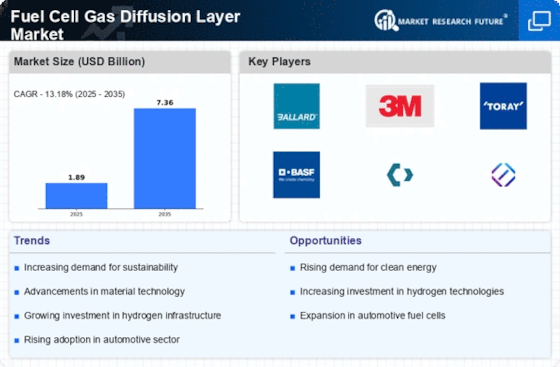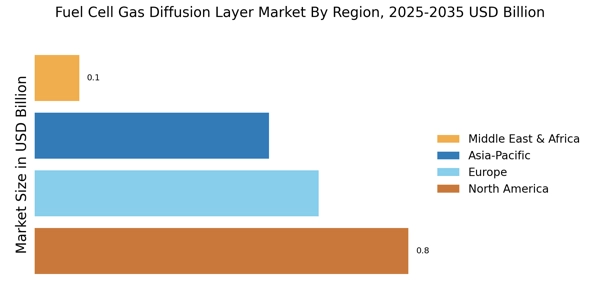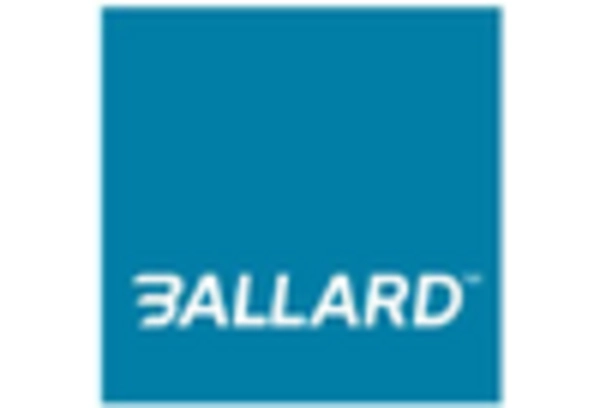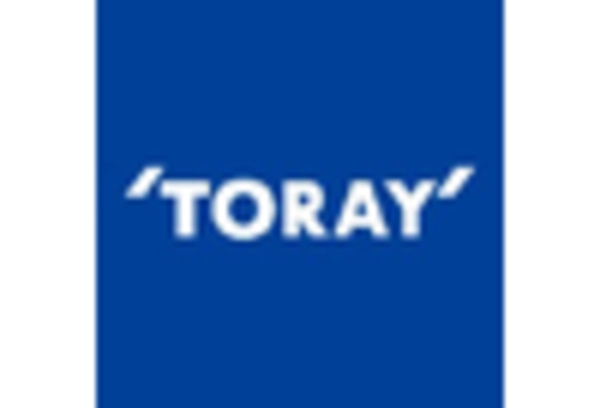Government Incentives and Policies
Government incentives and supportive policies play a crucial role in propelling the Fuel Cell Gas Diffusion Layer Market. Many governments are implementing subsidies, tax breaks, and grants to encourage the development and deployment of fuel cell technologies. For instance, initiatives aimed at promoting hydrogen as a clean energy source are becoming more common. These policies not only stimulate research and development but also create a favorable environment for manufacturers of gas diffusion layers. The financial backing from governments can significantly reduce the barriers to entry for new players in the market, potentially leading to increased competition and innovation.
Rising Demand for Clean Energy Solutions
The increasing emphasis on clean energy solutions is a primary driver for the Fuel Cell Gas Diffusion Layer Market. As nations strive to reduce carbon emissions and combat climate change, the adoption of fuel cell technologies is gaining traction. This shift is evident in various sectors, including transportation, where fuel cell vehicles are becoming more prevalent. According to recent data, the fuel cell market is projected to grow at a compound annual growth rate of over 20% in the coming years. This growth is likely to spur demand for gas diffusion layers, which are critical components in fuel cell systems, thereby enhancing the overall market landscape.
Technological Innovations in Fuel Cell Design
Technological innovations in fuel cell design are significantly influencing the Fuel Cell Gas Diffusion Layer Market. Advances in materials science and engineering are leading to the development of more efficient and durable gas diffusion layers. Innovations such as the use of nanomaterials and advanced coatings are enhancing the performance of fuel cells, which in turn drives demand for high-quality gas diffusion layers. The market is witnessing a shift towards lightweight and more efficient designs, which could potentially improve the overall efficiency of fuel cell systems. As manufacturers continue to innovate, the market for gas diffusion layers is expected to expand, reflecting the growing need for advanced fuel cell technologies.
Growing Applications Across Various Industries
The growing applications of fuel cells across various industries are driving the Fuel Cell Gas Diffusion Layer Market. Sectors such as automotive, aerospace, and stationary power generation are increasingly adopting fuel cell technologies due to their efficiency and low emissions. For example, fuel cells are being utilized in public transportation systems, providing a cleaner alternative to traditional diesel engines. The versatility of fuel cells is likely to expand their market reach, leading to an increased demand for gas diffusion layers. As industries continue to explore the benefits of fuel cells, the market for gas diffusion layers is expected to experience substantial growth, reflecting the broader trend towards sustainable energy solutions.
Increasing Investment in Hydrogen Infrastructure
The increasing investment in hydrogen infrastructure is a significant driver for the Fuel Cell Gas Diffusion Layer Market. As hydrogen is recognized as a key player in the transition to sustainable energy, investments in production, storage, and distribution infrastructure are on the rise. This trend is likely to create a robust demand for fuel cells, which rely on gas diffusion layers for optimal performance. Reports indicate that investments in hydrogen infrastructure could reach billions of dollars in the next decade, thereby providing a substantial boost to the fuel cell market. Consequently, the demand for gas diffusion layers is expected to grow in tandem with the expansion of hydrogen infrastructure.

















